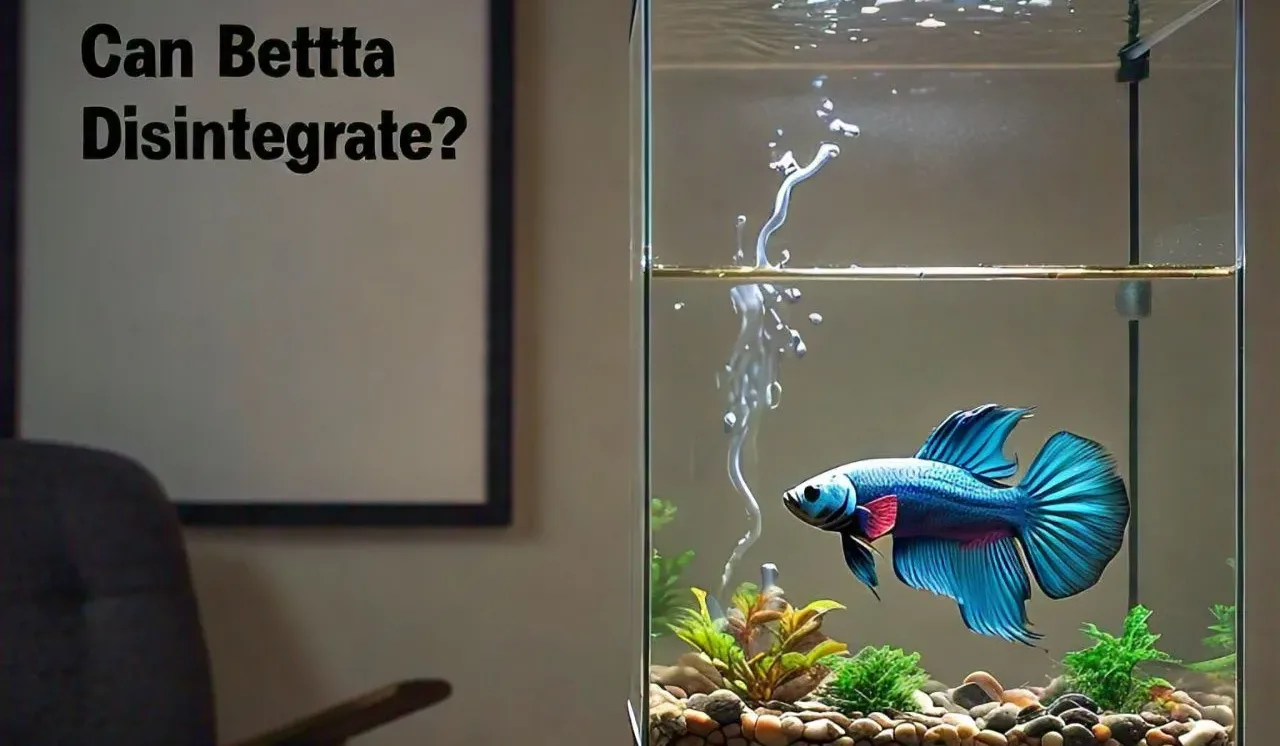Betta fish do not literally disintegrate, but they can suffer extreme physical deterioration under poor conditions or health issues. This often appears as fin rot, where the fins or tail start to fray and lose their vibrant color. This condition happens due to bacterial infections, parasites, or diseases, worsened by poor water quality and stress. If left unaddressed, the fins and body may develop lesions, and fragments of their fins can break away, leaving a damaged and rudimentary appearance. In extreme cases, this decline can lead to death.
Preventing Betta Fish Fin Rot
Betta fish, like any other aquarium pet, can experience fin rot if their environment isn’t properly maintained. To prevent this, it’s crucial to start with a clean and adequate water quality. A minimum of 5 gallons is recommended for a betta fish to prevent the speedy build-up of harmful bacteria and poor water quality. Uncycled environments or 3-4 days between water changes can stress out betta fish and contribute to fin rot. A smaller, heated 5-gallon tank is more manageable and less prone to rapid water quality changes. Ensure the tank isn’t overcrowded and has proper ecosystems to maintain a healthy environment.
What Causes Betta Fish to Look Like They’re Disintegrating?
Betta fish have small, delicate bodies that make them particularly susceptible to stress and injury. Sharp objects, aggressive tankmates, and injuries like fin tearing can damage their fins and scales, leading to a loss of color and frayed fins. These factors slow the immune system, making it harder for the fish to recover. Inadequate care, such as feeding poorly or keeping the tank unclean, can contribute to decay and bacterial growth. When the water quality is poor or there’s high ammonia and toxins, the betta’s body decomposes faster, especially since they are small compared to larger fish. This can lead to a sudden decline in health and death.
Regular care such as clean water, avoiding stress, and addressing disease symptoms is essential to watch for signs of decline. Tank maintenance should include removing sharp objects, monitoring water quality, and feeding properly. Aggressive tankmates should be avoided to protect the betta’s intact body and immune system. Proper care helps the betta fish live healthier and avoid any risks associated with their delicate nature.
Where Does a Fish Body Start to Decompose FIrst?
When a fish decomposes, its body starts to break down, or decompose, in a few specific places first. The process usually begins with the soft tissues, like the gills and eyes.
These parts are exposed to the water and have more bacteria, which quickly start to break them down. As areas break down, gases build up, causing the fish to bloat. Eventually, the entire body will decompose, but these softer parts are usually the first to go.
FAQs
How did my betta fish just disappear?
- It’s possible that your betta fish could have died and been consumed by other tank inhabitants (like snails or other fish), or it might have escaped the tank. Sometimes, if the tank isn’t sealed properly, betta fish can jump out.
Can fish disintegrate in water?
- Yes, fish can decompose in water if they die. Decomposition is a natural process and can occur rapidly, especially in warm water environments. Bacteria and other organisms break down the fish’s body.
Why is my betta fish deteriorating?
- There could be several reasons for deterioration, including poor water quality, illness, or inadequate nutrition. It’s important to check the water parameters, look for signs of disease, and consider the fish’s diet and tank conditions.
How fast do fish decompose?
- The rate at which fish decompose depends on factors like water temperature, water quality, and the size of the fish. In warm water, decomposition can be faster, sometimes taking just a few days.
Conclusion
To conclude, betta fish are sensitive creatures that require careful attention to their environment and health. Poor water quality, stress, inadequate nutrition, and diseases like fin rot can lead to deterioration and even death. Maintaining clean water, avoiding aggressive tankmates, and ensuring proper nutrition are key to keeping betta fish healthy.
